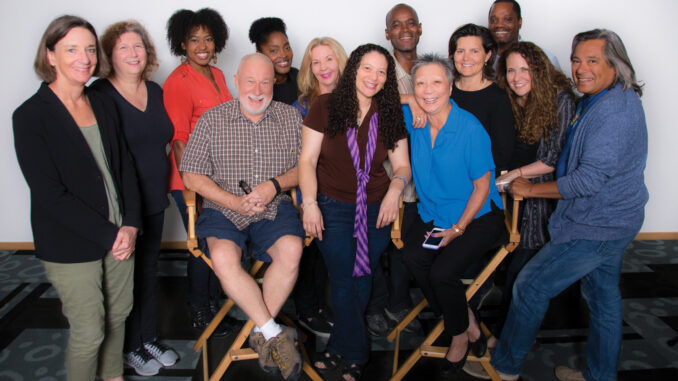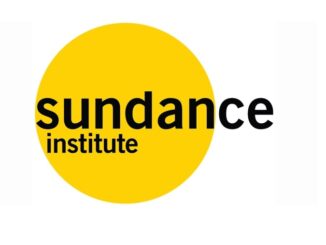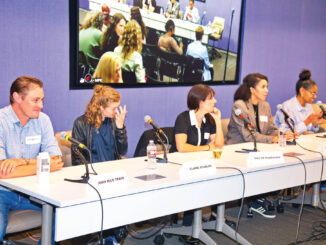
by Halima K. Gilliam
This past February, the Editors Guild’s Diversity Committee sent a membership-wide e-mail asking the 7,200 Guild members to participate in a 26-question survey. It focused on ascertaining whether discrimination occurs within the post-production workplace and to what extent.
A total of 2,258 replies translated to roughly 31% participation — by far the largest response from the membership on a single topic. Some 67.71% of the respondents were male, 29.53% were female, and 2.76% declined to reveal their gender. Whites/Caucasians represented 73.77% of survey participants, with the remaining 26.23% divided among 7.55% Hispanics/Latinos, 6.78% Asian/Pacific Islanders, 4.59% Black, 0.64% Native Americans, and 6.77% declining to reveal their ethnicity.
One key goal of the Diversity Committee is to educate and encourage members to be tolerant of different perspectives. Another goal is to begin taking steps toward diversifying post-production domains.
The recently slain British Labour Party Member of Parliament, Jo Cox, who championed against intolerance and for equality and diversity, said in her maiden speech, “Whilst we celebrate our diversity…we are far more united and have far more in common than that which divides us.” It is safe to say that we all want to excel in our careers and to be given an equal opportunity to do so. The Diversity Committee sought to learn if the members felt the same way.
About 60% of polled members believe we have a diversity issue. And while the majority of participants who answered this question reported that they neither witnessed nor experienced discrimination, around 36% indicated they had been victims of bias. Gender discrimination was cited most frequently, with ageism coming in a hard second. Fewer incidents of racial discrimination were reported, but given the low numbers of ethnic minorities in the Guild and that the majority of respondents were white, this is not surprising. In fact, some members noted that in well over a decade on the job, they had never worked alongside African Americans. Sexual orientation and disability discrimination were reported to a lesser degree.
Personal experiences described by fellow members on injustices suffered were unsettling. A small minority of participants declined to answer if they witnessed any discrimination; however, 21% reported being marginalized due to age. Members recounted being told they would not be hired because they were women. Necessity compelled one Asian member to change her name to “something more masculine” and “American,” resulting in “a significant increase in call-backs for work.” One man described witnessing a female colleague repeatedly barraged by sexual harassment yet was too fearful to speak out.
A minority of polled Caucasian respondents disagree that a problem with diversity exists, with one participant “saddened” by a problem she perceives as media-fabricated. Among those who did perceive a diversity problem, one Caucasian respondent observed, “the numbers [of under-representation] speak for themselves.” Another Caucasian participant stated, “White liberal males think they are already open-minded and that everything is already fair and based on ‘merit.’ They haven’t a clue… Women and diverse candidates face discrimination that holds them back from…being considered for a job.”
A small group of women expressed frustrations at being overlooked or underpaid “so a father could support his family.” Conversely, women were said by some to be discounted because motherhood brands them unreliable, and nursing mothers were subjected to unlawful restrictions. Another member mentioned that she worked nearly two decades alongside several male colleagues, performing identical tasks, only to discover she earned half of their salaries.
Currently, discrimination is most noticeable in salary allocation between different genders and ethnicities. Speaking solely of picture editors who revealed their wages, the highest paid were Caucasian men earning $17,500 and $18,000 weekly. White female earners reported earning up to $11,000 and $12,000. The highest ethnic earner was a Hispanic/Latino at $15,000 per week. Income transparency could help level the playing field when negotiating wages. According to a 2011 study by the Institute for Women’s Policy Research, “Pay secrecy appears to contribute to the gender gap in earnings.”
One Caucasian male admitted that he would resent losing out on jobs, but he believed fairness and the need for change is paramount. Some members shared their hope that the Diversity Committee could offer advice when discrimination occurs, and others suggested expansive networking opportunities. When asked if they would assist in highlighting opportunities for women and ethnic minority Guild members, respondents were split 40% “yes” and 40% “no” — with the remaining 20% expressing a willingness to assist in such efforts and attend Diversity Committee-sponsored events if their schedules permitted.
The committee would like to thank all of the survey respondents for their participation and candidness. We hope this will help to open up a dialogue on the issues of diversity and fairness in the workplace. Perhaps this can become a catalyst for improvements to post-production that will benefit everyone.
The complete survey has been posted in the Members Only section of the Guild’s website at www.editorsguild.com. Also, the Diversity Committee has a Facebook page: www.facebook.com/groups/diversityinpost. And finally, the committee’s first event, “Break the Ice,” has been scheduled for Sunday, September 11, at the Guild offices in Hollywood. Details will be forthcoming on the Facebook page.





